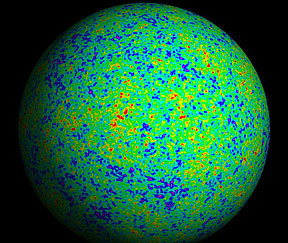Matias Zaldarriaga Discusses the Origins of the Universe and Advances in Modern Cosmology

Matias Zaldarriaga, Professor in the School of Natural Sciences at the Institute for Advanced Study, will present “In the Beginning: Modern Cosmology and the Origin of Our Universe” on Wednesday, November 11, at 4:30 p.m. in Wolfensohn Hall on the Institute’s campus.
One of the leading theoretical cosmologists of his generation, Zaldarriaga will explain the dramatic quest for understanding the origin of the universe. He will discuss advances in astronomical observations and laboratory experiments following Edwin Hubble’s discovery of the expansion of the universe in 1929.
Zaldarriaga has made many influential and creative contributions to our understanding of the early universe, particle astrophysics and cosmology as a probe of fundamental physics. With Uros Seljak, he developed CMBFAST, a technique for accelerated calculations of the properties of small fluctuations in Cosmic Microwave Background (CMB). Much of his work centers on understanding the clues about the earliest moments of our universe encoded in the CMB, the faint glow of radiation generated by the Big Bang. His recent research has focused on intergalactic hydrogen gas in the early universe, and he is at the forefront of developing machinery to study this gas using the spectral line from neutral hydrogen at 21-centimeter wavelength.
Zaldarriaga joined the Faculty of the Institute in 2009. He earned his undergraduate degree in physical science from the University of Buenos Aires in 1994. In 1998, he obtained a Ph.D. in physics from Massachusetts Institute of Technology (MIT). He was a long-term Member at the Institute from 1998 to 2001, and served as W. M. Keck Visiting Associate in Cosmology at the Institute from 2001 to 2002, while an Assistant Professor at New York University. In 2003, he joined Harvard University as Associate Professor, and was named Professor the following year, with appointments in both the Departments of Astronomy and Physics.
Among his honors, he was awarded the Helen B. Warner Prize by the American Astronomical Society in 2003 and the Gribov Medal by the European Physical Society in 2005. He was the recipient of a Sloan Fellowship in 2004 and a MacArthur Fellowship in 2006.
For further information about this event, which is free and open to the public, please call (609) 734-8175, or visit the Public Events page on the Institute website, www.ias.edu.
About the Institute for Advanced Study
The Institute for Advanced Study is one of the world’s leading centers for theoretical research and intellectual inquiry. The Institute exists to encourage and support curiosity-driven research in the sciences and humanities—the original, often speculative thinking that produces advances in knowledge that change the way we understand the world. Work at the Institute takes place in four Schools: Historical Studies, Mathematics, Natural Sciences and Social Science. It provides for the mentoring of scholars by a permanent Faculty of approximately 30, and it ensures the freedom to undertake research that will make significant contributions in any of the broad range of fields in the sciences and humanities studied at the Institute.
The Institute, founded in 1930, is a private, independent academic institution located in Princeton, New Jersey. Its more than 6,000 former Members hold positions of intellectual and scientific leadership throughout the academic world. Thirty-three Nobel Laureates and 40 out of 56 Fields Medalists, as well as many winners of the Wolf and MacArthur prizes, have been affiliated with the Institute.